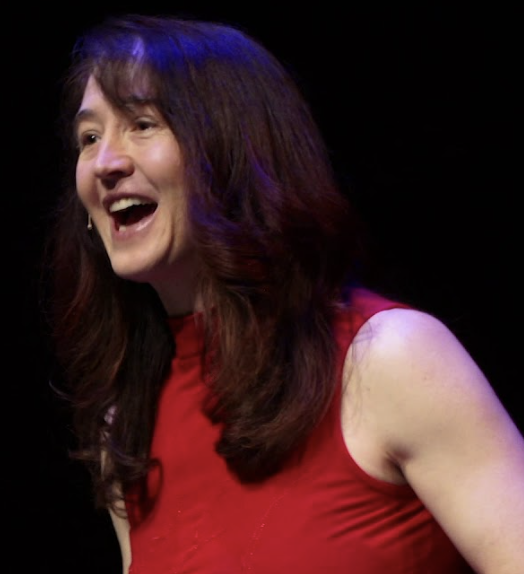PAR-Based Collaboration Seeks – Environmental Justice

My notebook entry is dated June 26th, 2019. I scan the page and note that I made the entry during Carl James’s session at ARNA 2019 in Montreal, Repoliticizing P/AR. In the bottom right-hand corner, I wrote epistemicide and then circled it. Just above, I wrote For whom are we doing the research? I can tell by the notebook entry that I was, in 2019, remembering the ARNA 2017 during which I encountered, for the first time, liberation for my core philosophical approach to my life’s work. I will never forget being in Cartagena, where the diversity of participants at ARNA was mirrored by the colors of the landscape – warm pinks and purples of sunsets melding into the cool blues and greens of the sea. Sitting in a conference room, with equally vivid beauty, I was surrounded by nearly 600 other action researchers. My heart sang as I absorbed shared sentiments that reductionist positivism is epistemicidal to the Other. Bathing in the shared view that pluriversity is a valid way of living, I felt like I was coming out of a closet formed by “objective” hard science.
I am many things. I am a coach; Along with my partner Dr. Christine Boggs, I have co-coached the men’s and women’s Nordic Ski Team at the University of Wyoming for 25 years. I co-founded the University’s International Nordic Ski Training Program. In 2011, I began coaching team USA at the World University Games, and while this was a phenomenal experience, I realized that integration of curriculum would convert this experience to one that was truly transformative. Thus, using the tenants of Action Research and Action Learning, we designed immersive curriculum around the 2015 World University Games in Strbske Pleso, Slovakia. Centering on skiing and climate change, this curriculum has evolved into a stable course, called Body as Planet, Planet as Body, in PAR-Based Collaboration Seeks Environmental Justice the Haub School of Environment and Natural Resources as well as in the Division of Kinesiology and Health. In all iterations of this course, we have utilized a PAR cycle to inform our learning outcome development, course assessment and future action!
For whom are we doing the research?
The evolution of the Body as Planet, Planet as Body course has been deeply impacted by the question. In later iterations, students have shifted their focus from the impact of climate change on skiing, to the way in which anthropogenic planetary dysbiosis is paralleled by increased human bodymind dysbiosis. I scan through my notebook from ARNA 2019 and find the following scrawled in impassioned script, “I need [to be able to write] about the earth becoming disabled through the same injustices that often increase disability, disease and unwellness in people. If people’s resilience in owning identity do we learn something new about the earth’s resilience? Can we understand her as also embracing her new identity while still fighting further injustices against and upon her?” Our 2019 curriculum deeply integrated the writing of Eli Clare and students read and designed action research centered on Clare’s book Brilliant Imperfection. Our 2023 curriculum asked students to apply PAR and Traditional Ecological Knowledge (TEK)/Indigenous Ways of Knowing to their work with our partners at the Owens Dry Lakebed. The now-dry lakebed has been one of the greatest sources of airborne dust laden with toxic metals like arsenic in North America. We partnered with Kathy Bancroft of the Lone Pine Paiute-Shoshone tribe and each of the students presented their PAR projects at ARNA 2023. We were deeply fortunate to present second in a round table presentation, our work flanked by Donald D. Pepion’s Becoming Piikani: A Native American Worldview and Will Makoyiisaaminaa and Michale Vendiola’s Surfacing Swinomish Success in Education. Part of this rich, threepart session, I realized that indigenous ways of knowing offer an ontological underpinning to PAR that inherently acknowledges the inextricable link between environmental and social justice.
I am a professor. I taught General Microbiology labs and lectures for almost thirty contact hours a week for almost twenty years. Impassioned by what I knew about what professors wanted students to be able to do, and its contrast with what skills our coursework allowed them to master, I designed a capstone course that facilitates students in doing original research from inception to completion. The course begins and ends with the question, “For whom are we doing the research?”. We begin with community partners, ranging from The Laramie Downtown Clinic that serves uninsured patients, to the Optics Division of Metabolic Studio – science artist who call attention to the injustices of environmental degradation through their photography. Students design their field and benchtop research around the issues and problems of our partners. I lead them through the arc of “traditional” research and then, gradually, we deconstruct the method, discuss the way that it sustains oppression of minoritized and marginalized Others and finally, lead students to the tenants of PAR, Queer Theory, Crip Theory, Afrofuturism and Feminism. Many students choose to continue their first-semester research into later semesters, and often their research is PAR. For example, Jaynie Welsh, a 2020 student completed a PAR study called Transdisciplinary Knowledge Creation is Anything but Rubbish. She showcased the collaboration between university student researchers, local seventh grade students, city officials and engineers to find solutions to an old, decommissioned landfill that was leaking toxic chemicals into ground water.
I am a faculty developer. I have trained hundreds of college educators across the state of Wyoming in active, inclusive pedagogy. We believe that immersing educators in the same type of classroom learning that students would experience is the best teacher. This summer of 2023, the educators were learners in a problem-based learning course centering on the environmental injustice of Owens Dry Lakebed. In teams they worked across scientific disciplines, ranging from chemical engineering to ecology, to design research that would enable them to apply their knowledge to addressing the problem. In all nearly cases, they unknowingly utilized a PAR approach. They began by asking, For whom are we doing the research? Their plans initiated with engaging the people of the Owens Valley in dialogue to determine what was most needed. I found myself drawing the PAR cycle on the board, explaining it to the college educators and realizing that well-designed curriculum leads learners to liberative PAR research. After ARNA 2023, Joe Shosh asked me to write a brief summary of the importance of PAR to my work. I hope, 10 11 instead, that this summary has enunciated that PAR is the heartbeat of my identity. Inherent in its tenants is not only the permission to center academic research on those who are generally most marginalized by it, but also permission to embrace and even celebrate my alternative, pluriverse self. I am many things and the permission to be so has allowed me to float gloriously, as if on the waves of a Cartagenian sea, away from the epistemicidal landscape of reductionist hard science and into the epistemithrive of PAR.
You can learn more about Rachel’s 2023 Body as Planet, Planet as Body course at https://www.uwyonordic.com/environment–natural-resources-class.html. Correspondence should be directed to Rachel Watson at .
